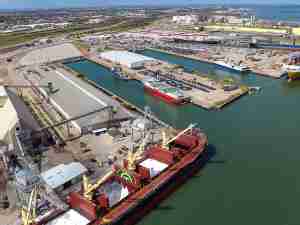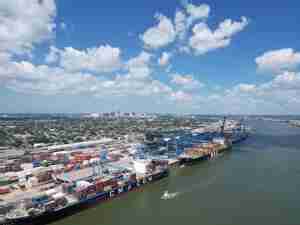To support the global fight against COVID-19 in its many aspects, PSA International (PSA) has signed the Neptune Declaration for Seafarer Wellbeing and Crew Change, joining forces with over 300 signatories across the supply chain to ensure that the current crew change crisis is resolved as soon as possible. PSA has also teamed up with the World Economic Forum (WEF) and 17 other like-minded partners to support UNICEF in distributing COVID-19 vaccines under the global COVAX program.
One of the effects of the COVID-19 pandemic has been an unprecedented crew change crisis, impacting hundreds of thousands of seafarers. Fatigue after long periods at sea has significant consequences on the physical and mental wellbeing of seafarers. As the frontliners of the maritime industry carrying 90% of global trade, seafarers play an important role in the safety and integrity of maritime supply chains.
The Neptune Declaration defines four main actions to facilitate crew changes and keep global supply chains functioning:
Even as the first COVID-19 vaccines begin to be rolled out, the Neptune Declaration highlights that seafarers should be recognised as key workers and be given priority access to them. Beyond calling for the priority vaccinations of seafarers, PSA has also made a commitment to enable the safe, sustainable and globally inclusive distribution of COVID-19 vaccines through signing the WEF Supply Chain & Transport Industry Charter in support of UNICEF and COVAX Vaccine Distribution.
- Recognize seafarers as key workers and give them priority access to COVID-19 vaccines
- Establish and implement gold standard health protocols based on existing best practice
- Increase collaboration between ship operators and charterers to facilitate crew changes
- Ensure air connectivity between key maritime hubs for seafarers
In order to comprehensively administer COVID-19 vaccines to populations in all countries and end the pandemic safely, the various vaccines will have to be transported and distributed in a coordinated, multi-modal, affordable, sustainable and reliable manner, via air, sea and land.
Sea freight plays an important role in ensuring the movement of related medical supplies and equipment necessary to carry out mass vaccinations. Some of the newer vaccines in development can also be safely handled by refrigerated containers (reefers) via sea freight, as they potentially have longer shelf life and require less stringent temperature controls of 2° to 8° Celsius in transit. With active power source onboard vessels and live remote temperature monitoring, thereby ensuring product integrity, visibility and rapid responses to exception management, sea freight will offer a competitive advantage in distributing the much-needed vaccines globally, including to remote regions around the world.
Targeting affordable and equitable vaccine distribution to 20% of the world’s population within 2021, UNICEF plans to distribute around 2 billion doses within the year. As a signatory to the WEF and UNICEF Charter, PSA will offer access to our global infrastructure, logistics knowledge and expertise, as well as on-the-ground assistance in supply chain operations.
Tan Chong Meng, Group CEO of PSA International, said, “In our interconnected and interdependent world, multi-stakeholder collaboration and action are key. PSA stands alongside our industry partners and stakeholders as we commit to ensuring the well-being of the seafarers in our spheres of influence, and to do our part to enable the globally inclusive, safe and sustainable distribution of COVID-19 vaccines.”










